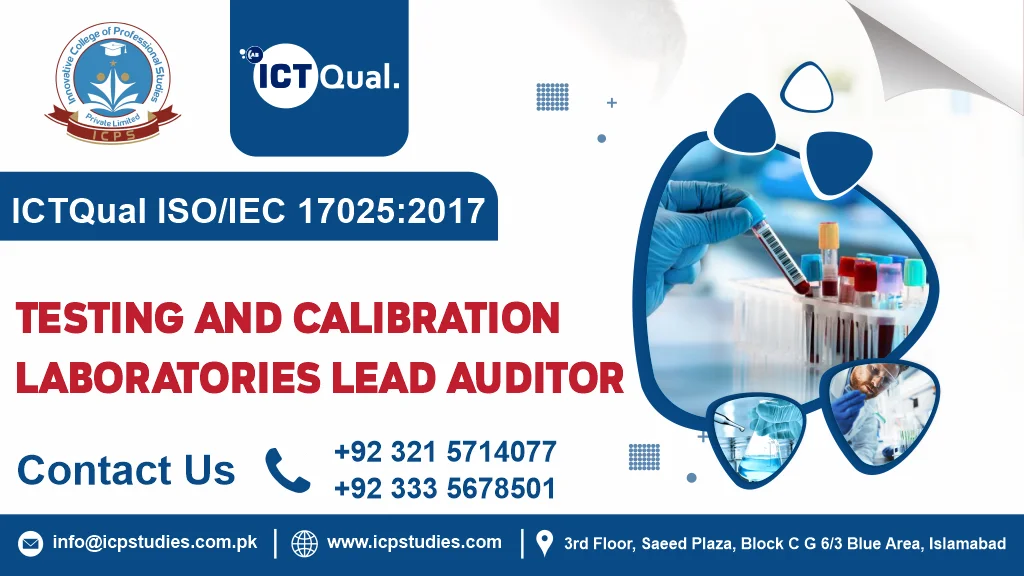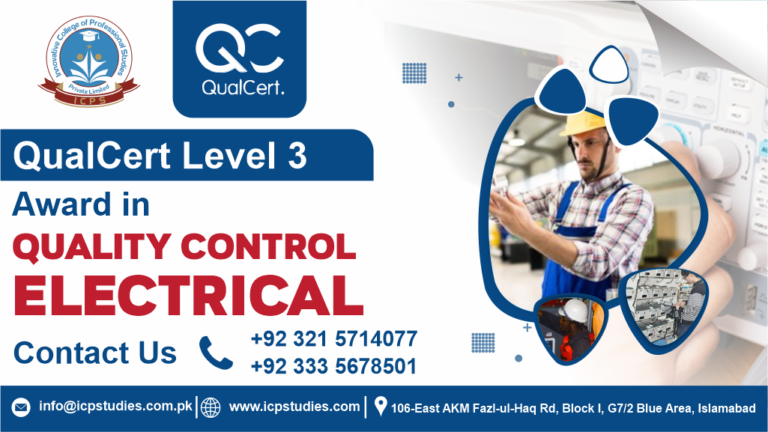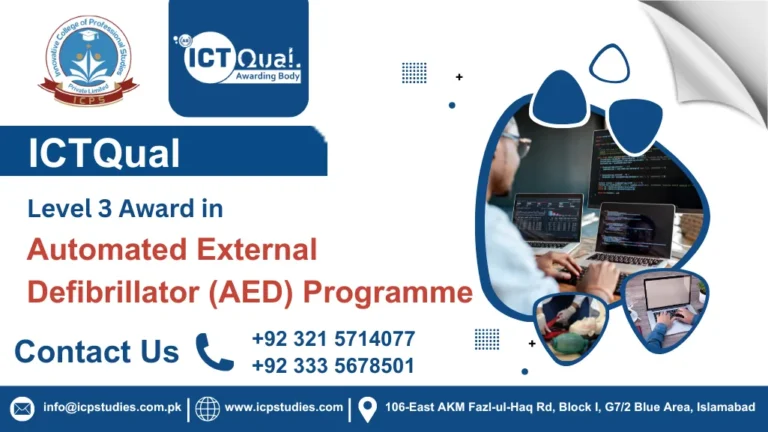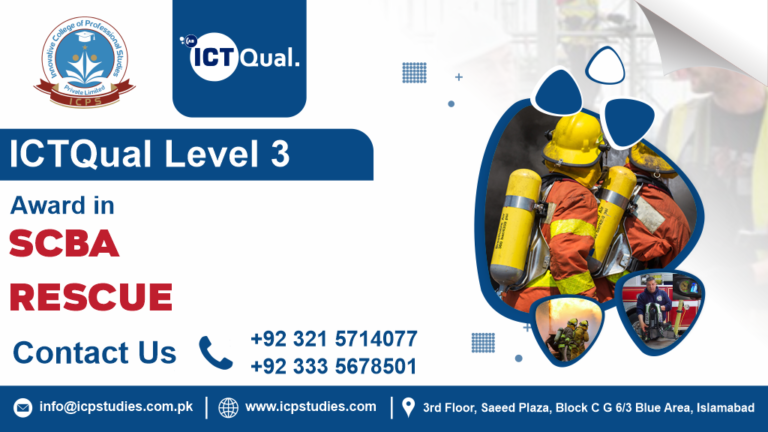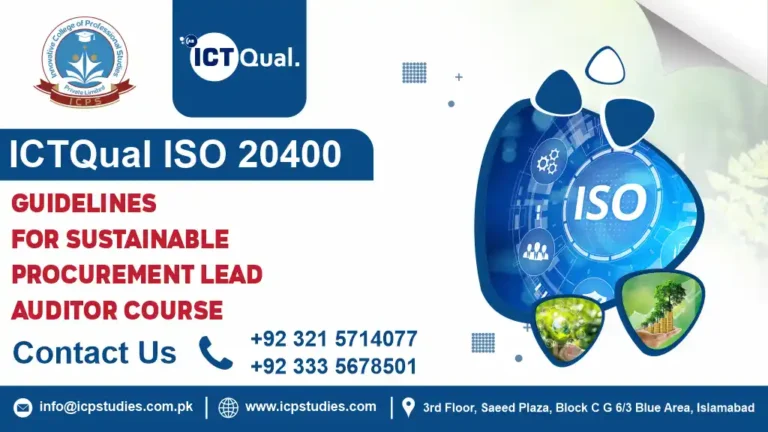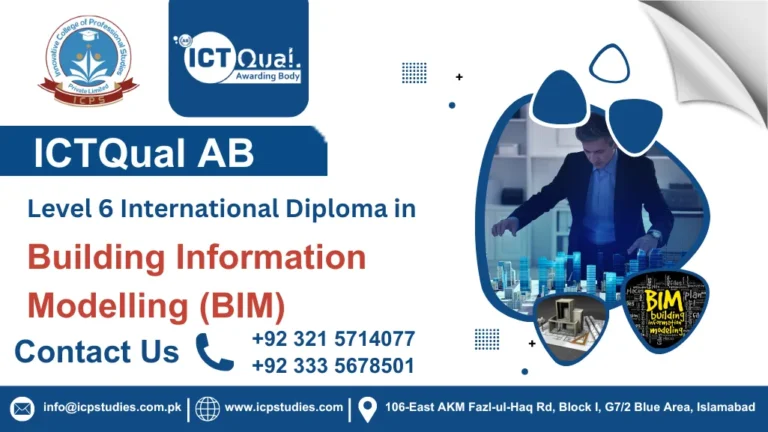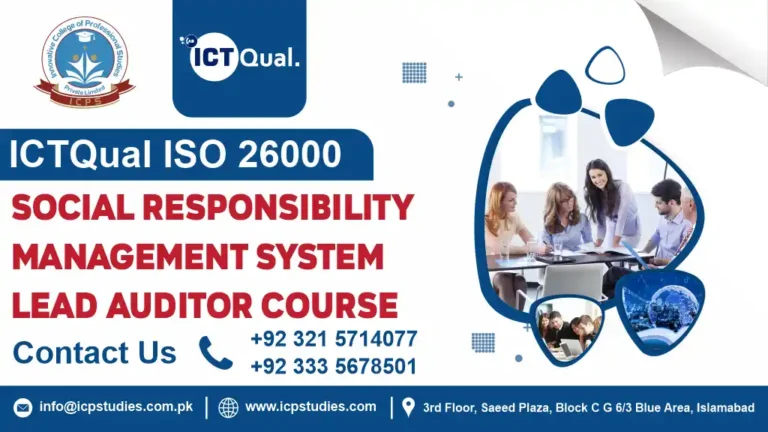In the realm of testing and calibration, ensuring accuracy, reliability, and compliance with international standards is crucial. For professionals in this field, mastering the principles of ISO/IEC 17025:2017 is essential to maintaining high-quality laboratory operations and meeting regulatory requirements. The ICTQual ISO/IEC 17025:2017 Lead Auditor Course is designed to equip you with the advanced skills needed to audit testing and calibration laboratories effectively and ensure adherence to these rigorous standards.
The ICTQual ISO/IEC 17025:2017 Lead Auditor Course is an in-depth training program aimed at developing expertise in auditing laboratories that operate in accordance with the ISO/IEC 17025:2017 standard. This international standard specifies the requirements for the competence of testing and calibration laboratories. The course focuses on the essential auditing techniques and procedures necessary for evaluating laboratory management systems and ensuring compliance with ISO/IEC 17025:2017.
The ICTQual ISO/IEC 17025:2017 Lead Auditor Course is a vital stepping stone for professionals seeking to excel in the field of laboratory management and auditing. By mastering the principles and practices outlined in this course, you will be well-equipped to ensure the accuracy, reliability, and compliance of testing and calibration laboratories with international standards.
All About ICTQual ISO/IEC 17025:2017(en) Testing and Calibration Laboratories Lead Auditor
Course Overview
The ICTQual ISO/IEC 17025:2017 Lead Auditor Course is an advanced training program designed to prepare professionals to conduct comprehensive audits of testing and calibration laboratories in accordance with the ISO/IEC 17025:2017 standard. This international standard specifies the general requirements for the competence of testing and calibration laboratories, ensuring they produce accurate and reliable results.
ICTQual ISO/IEC 17025:2017 Lead Auditor Course is a comprehensive program designed to equip professionals with the necessary skills and knowledge to effectively audit testing and calibration laboratories. It prepares participants to ensure that laboratories meet international standards of competence, accuracy, and reliability.
Study Units
- Introduction to ISO/IEC 17025:2017 Standard
- Principles of Quality Management Systems in Laboratories
- Requirements for Competence of Personnel
- Equipment and Measurement Traceability
- Testing and Calibration Procedures
- Quality Assurance Practices
- Audit Planning and Preparation
- Conducting Audit Activities
To enroll in the ICTQual ISO/IEC 17025:2017 Testing and Calibration Laboratories Lead Auditor Course, candidates should meet the following criteria:
- Professional Background: Applicants should have a relevant background in testing or calibration laboratories, quality management, or a related field.
- Minimum Qualification: A foundational qualification in quality management or laboratory operations is typically required. Relevant certifications (e.g., ISO 9001, ISO 17025) are advantageous.
- Practical Experience: Candidates should possess at least two years of experience in laboratory operations, quality assurance, or auditing, with a focus on testing and calibration.
- Understanding of ISO Standards: Familiarity with ISO/IEC 17025:2017 standards and related quality management principles is essential.
- Analytical Skills: Strong analytical and problem-solving abilities are necessary for conducting effective audits and evaluations.
- Effective Communication Skills: Proficiency in verbal and written communication is crucial for preparing audit reports and presenting findings.
- Pre-Course Assessment: Some providers may require candidates to complete an assessment or interview to evaluate their suitability for the course.
The ICTQual ISO/IEC 17025:2017 Testing and Calibration Laboratories Lead Auditor Course is tailored for a range of professionals involved in laboratory management and quality assurance. Ideal candidates include:
- Laboratory Managers: Individuals responsible for overseeing laboratory operations and ensuring compliance with quality standards.
- Quality Assurance Professionals: Those focused on maintaining quality control and compliance within testing and calibration environments.
- Internal Auditors: Professionals tasked with evaluating laboratory processes and systems to ensure they meet ISO standards.
- Calibration and Testing Technicians: Individuals involved in performing tests and calibrations who wish to deepen their understanding of auditing practices.
- Quality Managers: Professionals seeking to enhance their skills in managing quality systems and conducting audits in laboratory settings.
- Consultants: Those advising laboratories on compliance with ISO/IEC 17025 standards who want to improve their auditing capabilities.
- New Graduates and Aspiring Auditors: Individuals looking to start a career in laboratory management or quality auditing.
Learning Outcome
1. Introduction to ISO/IEC 17025:2017 Standard
- Learning Outcomes:
- Understand the scope, purpose, and objectives of ISO/IEC 17025:2017.
- Describe the structure and key clauses of the standard.
- Explain how ISO/IEC 17025:2017 applies to testing and calibration laboratories.
- Identify the benefits and implications of implementing the standard within laboratory settings.
2. Principles of Quality Management Systems in Laboratories
- Learning Outcomes:
- Define the core principles of quality management systems (QMS) and their relevance to laboratories.
- Explain the role of a QMS in ensuring the accuracy and reliability of testing and calibration results.
- Assess how laboratory processes and practices align with QMS principles.
- Identify best practices for developing and maintaining a robust QMS in laboratories.
3. Requirements for Competence of Personnel
- Learning Outcomes:
- Understand the requirements for personnel competence as outlined in ISO/IEC 17025:2017.
- Describe the criteria for evaluating the qualifications, training, and experience of laboratory staff.
- Assess the impact of personnel competence on the quality of testing and calibration results.
- Develop strategies for ensuring ongoing competence and training of laboratory personnel.
4. Equipment and Measurement Traceability
- Learning Outcomes:
- Explain the requirements for equipment calibration, maintenance, and traceability as specified by ISO/IEC 17025:2017.
- Understand the concept of measurement traceability and its importance for accurate and reliable results.
- Assess the procedures for managing and documenting equipment calibration and maintenance activities.
- Implement practices to ensure measurement traceability and compliance with the standard.
5. Testing and Calibration Procedures
- Learning Outcomes:
- Describe the requirements for developing and implementing testing and calibration procedures.
- Understand the importance of validating and verifying procedures to ensure accuracy and reliability.
- Evaluate laboratory procedures to ensure they meet ISO/IEC 17025:2017 requirements.
- Identify methods for improving and updating testing and calibration procedures.
6. Quality Assurance Practices
- Learning Outcomes:
- Understand the role of quality assurance in maintaining and improving laboratory performance.
- Describe various quality assurance practices, including internal audits, proficiency testing, and corrective actions.
- Assess the effectiveness of quality assurance measures in detecting and addressing non-conformities.
- Implement quality assurance practices to enhance laboratory operations and compliance with ISO/IEC 17025:2017.
7. Audit Planning and Preparation
- Learning Outcomes:
- Develop a comprehensive audit plan for assessing laboratory compliance with ISO/IEC 17025:2017.
- Define the scope, objectives, and criteria of the audit.
- Prepare audit tools and documentation to facilitate a structured and effective audit process.
- Identify potential risks and challenges in audit planning and develop strategies to address them.
8. Conducting Audit Activities
- Learning Outcomes:
- Execute audit activities effectively, including data collection, interviews, and observations.
- Evaluate laboratory practices and procedures against ISO/IEC 17025:2017 requirements.
- Identify and document non-conformities and areas for improvement.
- Engage with laboratory personnel and stakeholders to gather relevant information and insights during the audit.
These learning outcomes ensure that participants gain a thorough understanding of the ISO/IEC 17025:2017 standard and develop the skills necessary to lead and conduct effective audits of testing and calibration laboratories. They will be well-prepared to assess laboratory compliance, contribute to quality improvement, and achieve certification as a Lead Auditor.
FAQs about ICTQual ISO/IEC 17025:2017(en) Testing and Calibration Laboratories Lead Auditor

